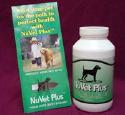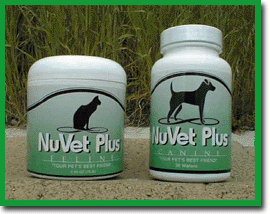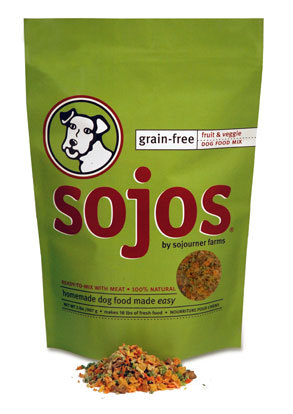QuestionI have recently been looking into dog food and what nutrients are better for dogs. I am trying to educate myself enough to judge which food is best for my dog. I have a young puppy I got from a local shelter. They dont know exactly how old he is but it is estimated he is around 6-7 months. He is wonderful and active and super playful. He has been neutered and is up to date on vet care. He is a mixed breed but likely a pit terrier mix. I have one particular question I cannot seem to get an answer too, can a dog have too much protein? I am looking into more premium foods and I find alot of stuff that those premium foods can have too much protein and it can be bad. This kinda baffles me because a wild dog or wolf lives on mostly meat, does it? I mean most premium foods average around 27% protein according to the guarantee analysis. I read alot about excessive protein causing liver damage, kidney failure, and pancreas issues. Are there any truth to these claims?
AnswerHi Rachel,
You wrote:
"I have recently been looking into dog food and what nutrients are better for dogs. I am trying to educate myself enough to judge which food is best for my dog."
Good luck on the Internet. I teach canine nutrition and at least half of my students need to UNlearn things they read online and believed as true. Many sites that look very elaborate are not filled with balanced information but rather, the authour's opinions, which may or may not reflect scientific reality. I certainly have my opinions too, but am quick to make clear what is science as we currently possess it and what is my educated guess. If you're interested in a course of mine, they are very affordable and very thorough - please contact me at home for an outline and fee information. My yahoogroup is another source of clear, level headed and up to date information.
http://groups.yahoo.com/group/ThePossibleCanine-Nutrition
You wrote:
" I have one particular question I cannot seem to get an answer too, can a dog have too much protein? "
Ok. The simple answer here is - yes and no. <g> First of all, let's look at what we know to be the protein requirement for dogs, as of the most recent research we have. The NRc Guidelines state a Minimum Requirement for Crude Protein of 2.62 grams per Unit of BodyWeight ( actually, to kilogram of bodyweight to the power of 0.75). This is a minimum, and they also offer a Recommended Allowance of 3.28 grams per Unit BW. In a home made diet using Metabolizable Energy as our measurement, most nutritionists use 2 - 3 times this amount. In my own diets for a healthy adult dog, the gram amount of protein I use is about 2.5 times the NRC Recommended Allowance. Why is this? Because dogs are carnivores and a healthy specimen not only does well with this amount, they thrive on it. Let me stress - this is a healthy dog. And also - there is no SUL or safe Upper Limit of dietary protein as there is for fat or for individual nutrients (minerals, fat soluble vitamins).
Now; this is a healthy adult dog I am talking about here. And this is extremely basic nutrition , for the main reason we are considering protein in isolation from the nutrients associated iwth it. Foods that provide protein also contain varying levels of other nutrients, which need to be considered as well.So - when do we limit protein? we limit it in cases of illness. High protein diets have NEVER been shown to directly cause disease, but restricting protein has been shown to be therapeutic in cases of existing disease.The foods that CONTAIN high levels of protein also contain high levels of other nutrients, for example phosphorus; and high dietary phosphorus is linked to renal (kidney) disease. Hence, with early to mid stage kidney disease we restrict phosphorus. As a nutritionist I am able to formulate a diet that still supplies adequate, even plentiful dietary protein while limiting the phosphorus, and let's not forget that various foods that contain protein also have various levels of these other nutrients' ground lamb is a very fatty protein source, cod a lean one. Some of these foods, as they are broken down and utilized by the body, leave behind waste products such as ammonia, that are hard on the liver and kidney to process. Hence - before I write a book here - lower protein diets are *sometimes* helpful when the body is in distress, when the liver or kidneys are stressed or malfunctioning. I've brought many dogs back from severe liver disease using a vegetarian diet. In advanced kidney disease we also restrict not only minerals but protein. However - high protein per se does not cause these disease - and let's be perfectly clear here - CERTAINLY NOT the levels found in premium diets.
You wrote:
"I am looking into more premium foods and I find alot of stuff that those premium foods can have too much protein and it can be bad. This kinda baffles me because a wild dog or wolf lives on mostly meat, does it?"
I'd be interested in your research that supports the idea these "high protein" foods are "bad". Really, I would.
Personally I don't consider what wolves eat to be relevant. We have research on optimal levels of nutrients on domestic dogs, and this varies somewhat according to age, breed, health status, actiity level. Yes, dogs are carnivores and can thrive on protein levels much higher than 27% DM (dry matter). I research canine nutrition as part of my dayjob, and have for over 12 years now. If you can show me one single credible scrap of scientific evidence that feeding 27 - 35% protein on a dry matter basis causes disease of any sort, I'd be most interested. I'm sure the large and prestigious companies like Wellness, Solid Gold, Naturapet, Fromm and Natural Balance would all be interested as well.
Point taken?
You wrote:
"I mean most premium foods average around 27% protein according to the guarantee analysis. I read alot about excessive protein causing liver damage, kidney failure, and pancreas issues. Are there any truth to these claims?"
27% protein is in no way "high". Maybe 40% as in some of the so-called protein- focused foods, is high for some dogs. I use about 30 - 35% with my own dogs and my clients and feel this is an optimal range. I think you are reading very old, outdated research. It's true in the 70s, when i was working in my Dad's veterinary clinic, it was standard to restrict protein for kidney disease. We know now that it's more the mineral content that needs to be limited, at least in early stage disease. Protein should be evaluated in all cases of kidney or liver illness, and a therapeutic diet developed with appropriate adjustments. It's really fat that is linked to pancreatitis, although the direct cause of the condition is not known, and high dietary fat seems to be a trigger more than a cause.
In short;
1) Premium foods range from lower protein, as low as 21% that I'm aware of, to very high, up to 40%. If for whatever reason you are not comfortable with the high end, opt for a lower version.
2) High protein per se is not causative of disease, but may need to be reduced therapeutically - due to a weakness of the organs used to process by products, mainly
3) All this said, one will always need to consider the individual dog! I have an adult male Ridgenack here who tends to be hyperactive,and I've found that keeping him around 28% (moderate) levels tones down his hyperness. My senior female who is a little portly gets 33% and is great on that. The protein levels are important but also individual and will vary according to the dog as well as age etc. Always be pragmatic; if something isn't working, don't use it. There are lots of options out there.
3) People telling you to use cheap foods with poor quality ingredients and a whopping list of allergens/carcinogens because the PROTEIN is "too high" in premium foods really do not know word one about canine nutrition. Trust me on that one. Please.
I hope this has answered your questions a little. I know how confusing it can be and when you encounter sites that need updating or "experts" who are frankly, anything but - it just gets worse. I'm sorry you were scared off improving your dog's nutrition. I strongly encourage you to join my yahoogroup where you can ask this stuff to your hearts content and no one will flame you, or even worse, try to scare you off feeding high quality foods based on ignorance, resistance to change, and fear-mongering.
Catherine

 Dalmation food grain free dog food ; dogs digestion nuvet;
QuestionI have had a Dalmatian in the past and I was to
Dalmation food grain free dog food ; dogs digestion nuvet;
QuestionI have had a Dalmatian in the past and I was to
 NuVet Plus multi vitamin for pups ; The Best is NuVet Plus ; puppy training tips ;
QuestionIm going to be getting a Lab puppy, 8 weeks old
NuVet Plus multi vitamin for pups ; The Best is NuVet Plus ; puppy training tips ;
QuestionIm going to be getting a Lab puppy, 8 weeks old
 English Bulldog Food Allergies
QuestionHi,
Our English Bulldog was on Blue Buffalo Chi
English Bulldog Food Allergies
QuestionHi,
Our English Bulldog was on Blue Buffalo Chi
 Salmon oil vitamin supplements
QuestionQUESTION: I have 3 dogs...50lb mutt, 80lb gsd a
Salmon oil vitamin supplements
QuestionQUESTION: I have 3 dogs...50lb mutt, 80lb gsd a
 Food Allergies and Struvite stones
QuestionQUESTION: Hello, I have a 6 year old Puggle who
Food Allergies and Struvite stones
QuestionQUESTION: Hello, I have a 6 year old Puggle who